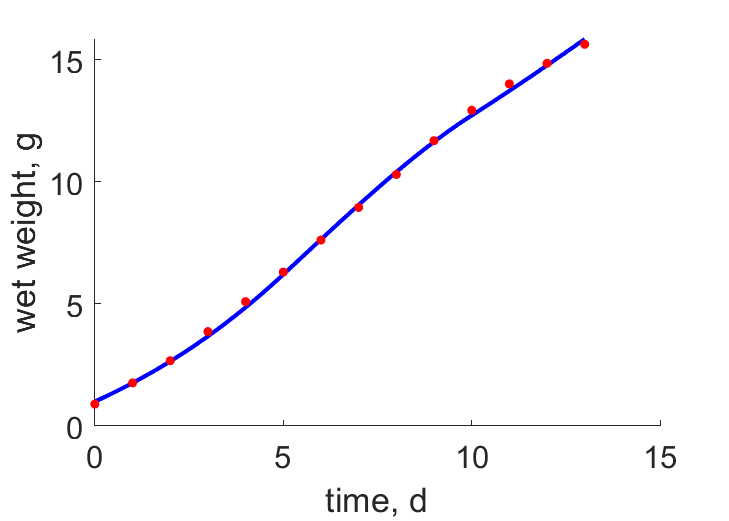Predictions & Data for this entry
| Model: std | climate: Cfb | migrate: | phylum: |
| COMPLETE = 2.5 | ecozone: TPac | food: biCi, biHs | class: |
| MRE = 0.031 | habitat: 0iTf, 0iThh | gender: Dg | order: |
| SMSE = 0.003 | embryo: Tnpf | reprod: O | family: |
Zero-variate data
| Data | Observed | Predicted | (RE) | Unit | Description | Reference |
|---|---|---|---|---|---|---|
| ab | 12.5 | 13.13 | (0.05048) | d | age at birth | avibase |
| tx | 14 | 14.02 | (0.00147) | d | time since birth at fledging | avibase |
| tp | 42 | 41.76 | (0.005745) | d | time since birth at puberty | guess |
| tR | 365 | 365 | ( 0) | d | time since birth at 1st brood | guess |
| am | 8760 | 8855 | (0.01088) | d | life span | AnAge |
| Ww0 | 1.54 | 1.369 | (0.1107) | g | initial wet weight | avibase |
| Wwb | 0.89 | 0.9941 | (0.117) | g | wet weight at birth | avibase |
| Wwi | 15.3 | 15.2 | (0.006822) | g | ultimate wet weight | avibase |
| Ri | 0.02082 | 0.02068 | (0.00687) | #/d | maximum reprod rate | avibase |
Uni- and bivariate data
| Data | Figure | Independent variable | Dependent variable | (RE) | Reference |
|---|---|---|---|---|---|
| tW |  | time | wet weight | (0.01487) | Kiln2001 |
Pseudo-data at Tref = 20°C
| Data | Generalised animal | Serinus canaria | Unit | Description |
|---|---|---|---|---|
| v | 0.02 | 0.03136 | cm/d | energy conductance |
| p_M | 18 | 525.8 | J/d.cm^3 | vol-spec som maint |
| k_J | 0.002 | 0.0217 | 1/d | maturity maint rate coefficient |
| k | 0.3 | 0.3027 | - | maintenance ratio |
| kap | 0.8 | 0.9528 | - | allocation fraction to soma |
| kap_G | 0.8 | 0.7988 | - | growth efficiency |
| kap_R | 0.95 | 0.95 | - | reproduction efficiency |
Discussion
- food availability varies in time
- mod_1: v is reduced
- mod_2: Pseudo-data point k is used, rather than k_J; Data set tp and parameter t_R are added, the latter replacing clutch interval t_N. Postnatal T is based on PrinPres1991, see get_T_Aves. See further the revision page, theme puberty
Bibliography